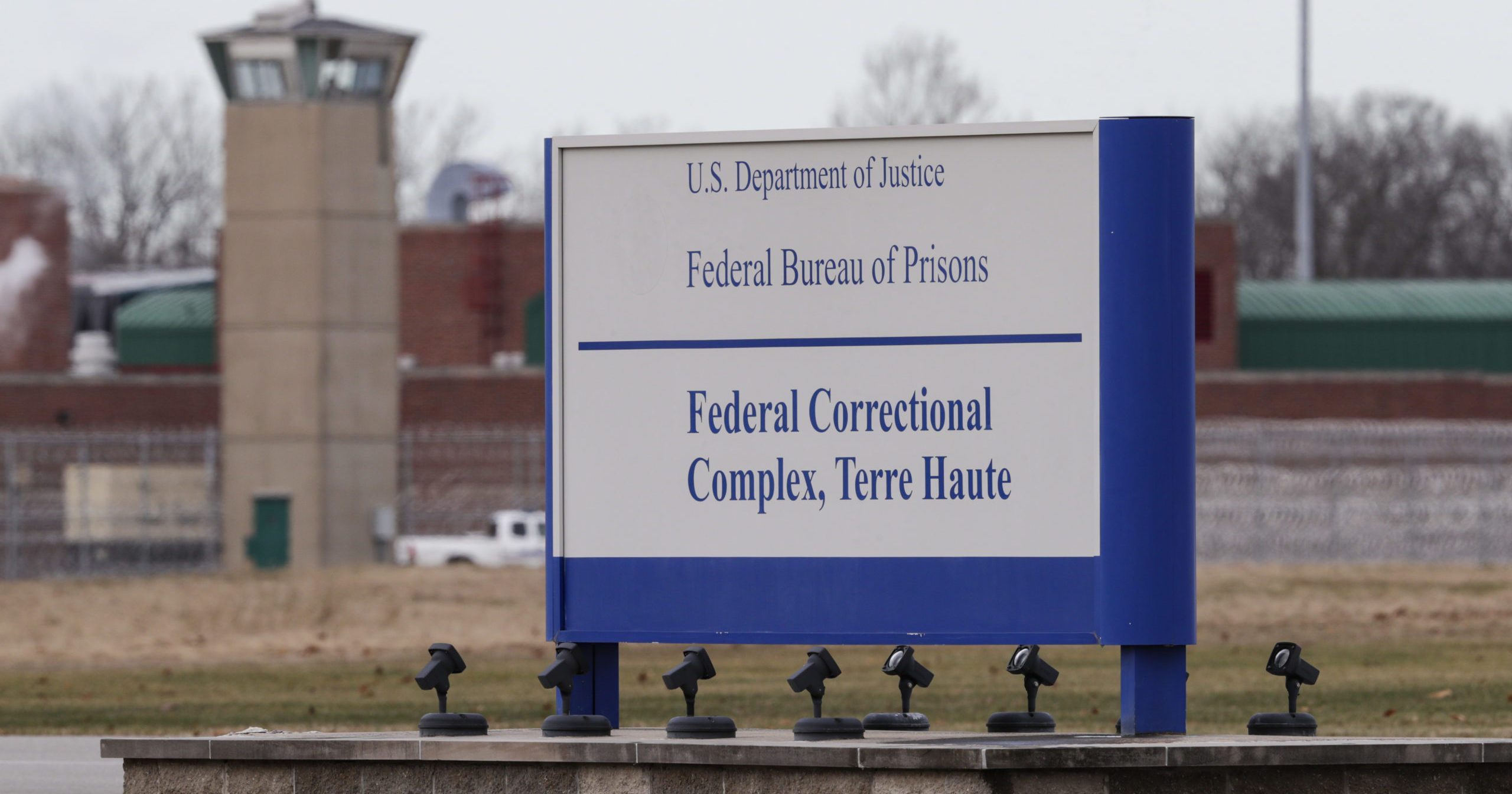
Fed Prisoner Executed After Supreme Court Ends Legal Wrangling
The federal government on Tuesday carried out its first execution in almost two decades, killing by lethal injection a man convicted of murdering an Arkansas family in the 1990s.
The execution of Daniel Lewis Lee came over the objection of the victims’ relatives and followed days of legal wrangling and delays.
Lee, 47, of Yukon, Oklahoma, professed his innocence just before he was executed at the federal prison in Terre Haute, Indiana.
“I didn’t do it,” Lee said. “I’ve made a lot of mistakes in my life, but I’m not a murderer.”
His final words were: “You’re killing an innocent man.”
The execution of Lee, who died at 8:07 a.m. ET, went off after a series of legal volleys that ended when the Supreme Court stepped in early Tuesday in a 5-4 ruling and allowed it to move forward.
Attorney General William Barr has said the Justice Department has a duty to carry out the sentences imposed by the courts, including the death penalty, and provide closure to the victims and those in the communities where the killings happened.
But relatives of those killed by Lee in 1996 argued Lee deserved life in prison. They wanted to be present to counter any contention that the execution was being done on their behalf.
“For us it is a matter of being there and saying, ‘This is not being done in our name; we do not want this,’” relative Monica Veillette said.
They noted Lee’s co-defendant and the reputed ringleader, Chevie Kehoe, received a life sentence.
Kehoe, of Colville, Washington, recruited Lee in 1995 to join a white supremacist organization. Two years later, they were arrested for the killings of William Mueller, his wife, Nancy, and her 8-year-old daughter, Sarah Powell, in Tilly, Arkansas, about 75 miles northwest of Little Rock.
At their 1999 trial, prosecutors said Kehoe and Lee stole guns and $50,000 in cash from the Muellers.
Prosecutors said Lee and Kehoe incapacitated the Muellers and questioned Sarah about where they could find money and ammunition.
Then, they used stun guns on the victims, sealed trash bags with duct tape on their heads to suffocate them, taped rocks to their bodies and dumped them in a nearby bayou.
A U.S. District Court judge put a hold on Lee’s execution on Monday which an appeals court upheld, but the high court overturned it.
That delay came after an appeals court on Sunday overturned a hold put in place last week after the victims’ relatives argued they’d be put at high risk for the coronavirus if they had to travel to attend the execution.
Lee’s execution was then set to happen at 4 a.m. ET, but a last-minute legal question was raised by his lawyers.
The Justice Department said it filed a request with the court to straighten it out and went through with the execution.
Two other federal executions are scheduled for this week, though one remains on hold in a separate legal claim.
There have been two state executions in the U.S. since the pandemic triggered shutdowns nationwide in mid-March — one in Texas and one in Missouri, according to the Death Penalty Information Center. Alabama had one in early March.
Executions on the federal level have been rare, and the government has put to death only three defendants since restoring the federal death penalty in 1988 — most recently in 2003, when Louis Jones was executed for the 1995 kidnapping, rape and murder of a young female soldier.
Though there hadn’t been a federal execution since 2003, the Justice Department has continued to approve death penalty prosecutions and federal courts have sentenced defendants to death.
In 2014, following a botched state execution in Oklahoma, President Barack Obama directed the Justice Department to conduct a broad review of capital punishment and issues surrounding lethal injection drugs.
The attorney general said last July the review had been completed, allowing executions to resume.
He approved a new procedure for lethal injections that replaces the three-drug combination previously used in federal executions with one drug, pentobarbital.
This is similar to the procedure used in several states, including Georgia, Missouri and Texas.
Numbers of state executions have fallen steadily since the 2003 federal execution, according to data compiled by the Death Penalty Information Center.
States put to death 59 people in 2004 and 22 in 2019.
The Western Journal has reviewed this Associated Press story and may have altered it prior to publication to ensure that it meets our editorial standards.
Truth and Accuracy
We are committed to truth and accuracy in all of our journalism. Read our editorial standards.
Advertise with The Western Journal and reach millions of highly engaged readers, while supporting our work. Advertise Today.












